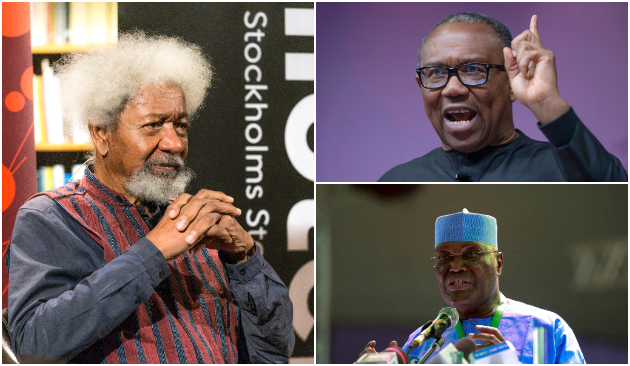
Nobel laureate Prof Wole Soyinka has said President Bola Tinubu won the presidential election because of the political differences between Peter Obi of the Labour Party and Atiku Abubakar of the Peoples Democratic Party (PDP).
During a dialogue organised by ‘Africa in the World,’ in Stellenbosch, South Africa, on Saturday, September 16, Soyinka called on politicians to learn to take responsibility for the consequences of their choices, especially in a democratic setting.
He said:
“The mistake we all continue to make is our insistence on regarding the recent Nigerian elections as an adversarial thriller. The contrary is the truth. The ballot tally accurately reflected what happens when a political party splits itself in two, especially so critically close to an election.
“What promised to be a spectacular contest is transformed into a Feast of Voluntary Donation of the spoils of war. That, however, is not always the ultimate destination – the re-gifting may continue, prodded by a sudden surge of regret. There remains, lurking in the background, a far more potent beneficiary.
“In this case, we easily recall it as the unregistered but loudly canvassed IPP – the Interim Peoples Party, usually to be found in bed with the military. The notorious Datti interview, menacing, intimidating and unambiguous, sets the scene for such re-entry. Then, history repeats itself over and over again, as currently manifested along the West African sub-region. The ‘call to arms’ is made literal by those whose trade is precisely that of arms.
“Barring such abrupt ‘patriotic intervention,’ however, the last word belongs to the Supreme Court. Until that conclusive hour, wherever and whenever the subject turns to the Nigerian elections, my contribution can be taken for granted in advance: Peter Obi did not win the Nigerian 2023 elections. Jointly with his erstwhile colleague of the PDP, Abubakar Atiku, they donated the outcome, even before the voting.
“Let politicians and their cohorts learn to take responsibility for the consequences of their choices within democratic options.”
